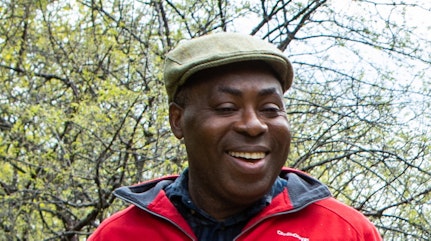Case Study: Maria
-
Case Studies

Case Study: Maria, Senior Administrator and Co-Chair of the AccessAbility Network
I joined Certitude a little over five years ago whilst looking for something different from my work with a multinational pensions company.
It had been my first job in the UK in a high-pressure environment in the centre of London. After five years I realised I wanted to work in a place where there was more of a focus on people being valued.
After I started at Certitude, another organisation chased me to work for them, but I could already see that Certitude had something different about it. I couldn’t put my finger on it – I just knew I wanted to stay.
In just a few weeks people thought I’d been there a long time. I felt accepted as I am. I didn’t know how much I needed to feel like I belonged to an organisation until it happened. I feel really at home here despite being in a different country, and not speaking my native language.
“That sense of belonging has a lot to do with people’s attitudes and it’s about language, it’s about culture”
Our culture here is all about supporting each other, and this resonates profoundly with who I am.
I’m co-chair of our AccessAbility Network. I was asked If I was interested after I shared with my manager in 2019 that I, alongside my son, had been diagnosed with ASD and ADHD. Like all colleague networks, it took some time to get people involved but having that space where people can feel like they can have extra understanding and support from their peers builds that sense of belonging.
A lot has developed and changed since we started talking about our Diversity and Inclusion Strategy. The AccessAbility network has been asked to comment and contribute more on sharing awareness and understanding in the organisation. We’re also consulted on policy decisions that are being made, and that helps us feel that we’re being considered in the way the organisation develops.
The other thing that has had a real impact is that we now have a Diversity and Inclusion Lead which shows a commitment to listening to different views around the organisation and making sure that we’re being heard.
I believe in the social model of disability, which suggests that people are disabled not by their impairments or differences, but by the barriers and attitudes present in society. Breaking down the stigma around disability is a great part of the AccessAbility network focus. Another important element is raising our mental health awareness and understanding that disabled people have higher anxiety than many of our colleagues. Having a place to freely talk about that helps. Personally, it means a lot to know that I have that extra support in place to manage my working life as well as my life goals.
“It’s important to be accepted by your peers. That’s what workplace inclusion is all about.”
Reasonable adjustments are not rocket science and in my personal case, I feel fortunate that people managing me have been understanding about things that are challenging for me. The response is always ‘What do you need for me to support you with that?’.
Since I’ve worked here, I can see the difference a focus on diversity and inclusion has made in people’s awareness of things like colleagues’ disabilities, their health and wellbeing, religious beliefs and cultural backgrounds. We’re talking about it in different ways now. We also have a new Women’s network and other open conversations and events, like our menopause cafes.





